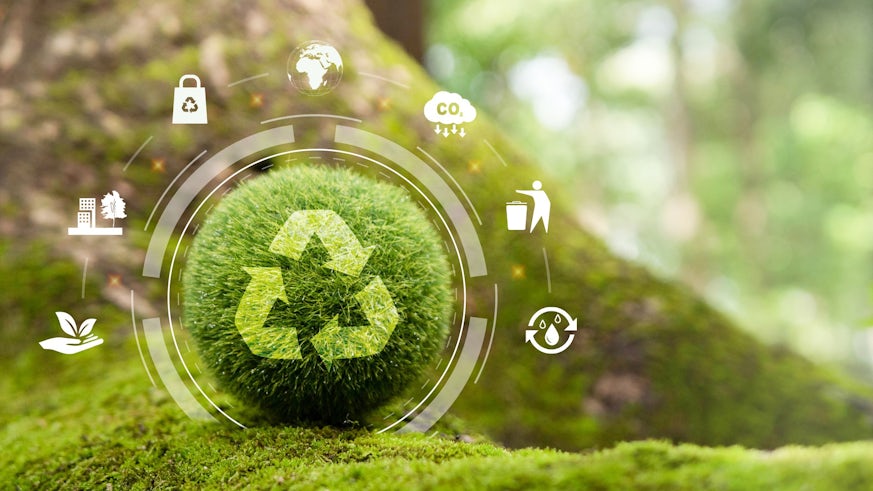Demystifying the circular economy
23 October 2023

The circular economy was the focus of a recent breakfast briefing event held by Cardiff Business School, with guest speakers from KPMG.
The session covered what the circular economy means and its importance, outlined how companies can shift towards circular practices, and showcased examples of businesses embracing this approach.
The online event was hosted by Yingli Wang, Professor of Logistics and Operations Management at Cardiff Business School.
First to speak was Nicolas Jourdain, Head of Circular Economy at KPMG for the EMA region. Describing the circular economy, Nicolas explained that it’s about companies designing products that are made to last, and that can be repaired and upgraded. This is to ensure we move to a world that eliminates waste and pollution, circulates products and materials, and regenerates natural systems.
On the topic of moving to a circular economy, Nicolas said: “we are talking about business practices. We are talking about systemic change because it’s a complete transformation for companies.”
Nicolas spoke about the importance of the shift to a circular economy. The world is currently considered as only 7% circular and he explained that circularity is essential in order for companies to meet net zero emissions.
Later in the session, Nicolas talked about the regulation of companies, referencing the European Union’s Circular Economy Action Plan. He said that we expect to have a massive acceleration and transformation in circularity as a result of companies being required to be more transparent in their reporting due to The Corporate Sustainability Reporting Directive.
Next to speak was Luke Bywaters, Strategy Advisor at KMPG, who discussed what shifting to circularity means for companies.
On how companies can successfully transition, Luke emphasized: “it absolutely to be a success needs collaboration and a joined-up approach across different functions within the organisation. But also ideally across the value chain, collaborating with customers and suppliers.”
He explained how KPMG can support companies in their circular transition. Areas they can assist with include:
- setting a strategy and vision and identifying opportunities
- regulations scanning
- measurement and steering
- design for circularity
- traceability and supply chain digitalization
- implementation and design management
Bringing to life the circular economy, Luke talked through some examples of companies practicing this. Initiatives companies are undertaking include:
- Philips Healthcare – offering a take-back and repair service to clients, with an ambitious plan to achieve 25% of their revenue from circular economy.
- Ikea – focusing on design principles, making products repairable, and also offering a take-back and repair service.
- Renault – have a factory which reconditions second-hand cars and EV batteries.
- Nespresso – have adopted a new business model where instead of their customers owning machines, customers rent products from Nespresso, so Nespresso can fix these and have an interest in extending their life.
Nicolas talked about the main driving forces that are pushing the economy towards a circularity tipping point. One of these driving forces is the introduction of Digital Product Passports (DPP), which from 2026/27 will be mandatory for 8 priority industries. He considers this as important and revolutionary for the swing to a circular economy.
To close the session, Nicolas and Luke took questions from the audience. Topics covered included whether manufacturers are hoarding resources and what universities can do from a research and teaching perspective to support the move to a circular economy.
Watch the recording of the breakfast briefing:
Cardiff Business School's Breakfast Briefing Series is a network of events which enables business contacts to find out more about the latest research and key developments from industrial partners.